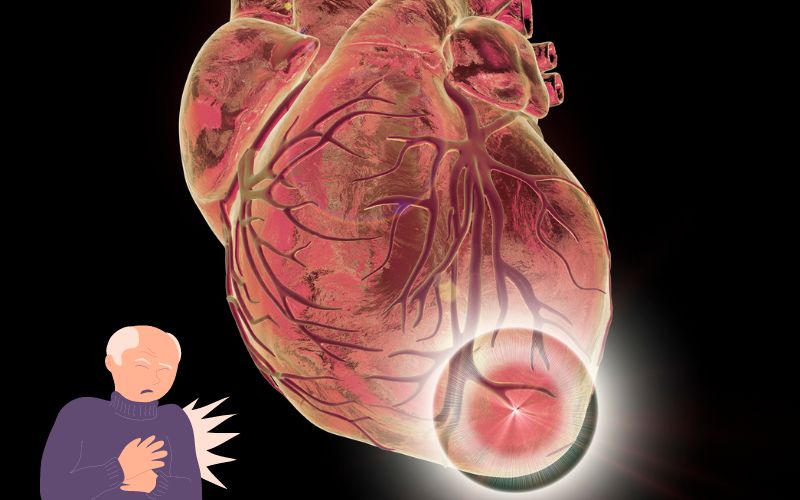While both heart attacks and cardiac arrests are life-threatening heart conditions, it’s important to understand the key differences between them. A heart attack occurs when blood flow to the heart becomes blocked, whereas cardiac arrest happens when the heart suddenly stops beating due to an electrical malfunction.
In India, cardiovascular diseases account for over 28% of all deaths, making it important for people to recognise the symptoms and act quickly. This article will explore the symptoms, causes, and treatments for both heart attacks and cardiac arrests while also highlighting the role of a heart specialist in Delhi in managing these emergencies.
Cardiac Arrest vs Heart Attack
Heart Attack: A Circulation Problem
A heart attack, medically known as a myocardial infarction, occurs when a blood clot suddenly blocks blood flow to a part of the heart. This blockage prevents oxygen-rich blood from reaching the heart muscle, leading to potential damage or death of that tissue. If not treated immediately, the affected area of the heart can suffer injury, resulting in serious complications or even death.
Cardiac Arrest: An Electrical Problem
In contrast, cardiac arrest is an electrical malfunction of the heart, where the heart suddenly stops beating, often due to arrhythmias. This immediately stops blood flow to vital organs, causing the person to lose consciousness.
If not treated within minutes, cardiac arrest can be fatal. Unlike a heart attack, where the heart may still be beating but deprived of blood, cardiac arrest means the heart has stopped altogether.
Diagnosis and Medical Testing
Diagnosis of a heart attack and sudden cardiac arrest requires several critical medical tests:
- Electrocardiogram (ECG): Heart doctors use an ECG to record the heart’s electrical activity, which helps identify heart damage and determine the type of heart attack.
- Blood Tests: Medical professionals measure cardiac enzymes, such as troponin, which rise when heart muscle damage occurs, indicating injury to the heart.
- Echocardiogram: Doctors visualise heart function and assess any damage to the heart muscle using ultrasound.
- Coronary Angiography: Doctors perform this invasive procedure by inserting a catheter to visualise blockages in coronary arteries, using contrast dye for better clarity.
Prevention of Heart Attack and Cardiac Arrest
Making changes to your daily routine can reduce your risk of cardiovascular disease.
- Adopt a heart-healthy diet
- Engage in regular physical activity
- Maintain a healthy weight
- Quit smoking
- Monitor blood pressure
- Control cholesterol levels
- Manage diabetes
- Limit alcohol intake
- Reduce stress
- Attend regular health screenings
Heart-Healthy Nutrition Tips for both Cardiac Arrest vs Heart Attack
- Fruits and Vegetables: Aim to consume at least five servings a day, focusing on options like leafy greens (spinach, kale), berries (blueberries, strawberries), and cruciferous vegetables (broccoli, cauliflower). These foods provide antioxidants, vitamins, and minerals that promote heart health and reduce inflammation.
- Whole Grains: Choose wholemeal bread, brown rice, quinoa, oats, and whole wheat pasta. Whole grains are rich in fibre, which helps lower cholesterol and maintain healthy blood pressure.
- Healthy Fats: Use olive, rapeseed, or avocado oil for cooking and dressing. Incorporate sources of omega-3 fatty acids, such as oily fish (salmon, mackerel, sardines) and walnuts, which help reduce the risk of heart disease and improve cholesterol levels.
Cardiac Arrest Symptoms: Recognising the Warning Signs
Common cardiac arrest symptoms include:
- Sudden collapse and loss of consciousness.
- Absence of a pulse.
- No breathing or gasping breaths.
Cardiac Arrest in Adults vs. Children
The causes and symptoms of cardiac arrest differ between adults and children:
- Adults: Coronary artery disease, heart failure, or arrhythmias are common causes. Symptoms often manifest suddenly, without prior warning.
- Children: Cardiac arrest in children results from airway obstruction, drowning, or trauma. Symptoms might include difficulty breathing or fainting before the event.
The Importance of Immediate Action
In the event of cardiac arrest, immediate action is a must. The following steps can improve survival chances:
- Call for help: Dial emergency services.
- Perform CPR: Start high-quality CPR right away, focusing on chest compressions. This helps maintain blood flow to vital organs until professional help arrives.
- Use an AED: If available, an Automated External Defibrillator (AED) should be used immediately. Early defibrillation can restore a normal heart rhythm and is essential for survival.
Heart Attack Symptoms: Recognising the Early Signs
The most common warning signs of a heart attack include:
- A feeling of pressure, squeezing, or fullness in the centre of the chest that can last for more than a few minutes or come and go.
- Shortness of breath with or without chest pain.
- Nausea, vomiting, light-headedness, or cold sweats.
When to Seek cardiology treatment in Delhi
Recognising the signs of a heart attack and seeking immediate medical care is important. Even if unsure, you should call your doctor or your local emergency number—every minute counts, as quicker treatment reduces the damage done to the heart muscle.
Timely action is important when dealing with heart conditions like heart attacks and cardiac arrests. These conditions can strike without warning, and understanding the difference between heart attack and cardiac arrest can have a life-saving impact. Care from the best heart hospital in Delhi ensures patients receive the best treatment. With advanced technology, skilled staff, and a focus on rapid response, Kalra Hospitals are the best cardiology hospital in Delhi, equipped to handle cardiac emergencies and long-term heart health management.








